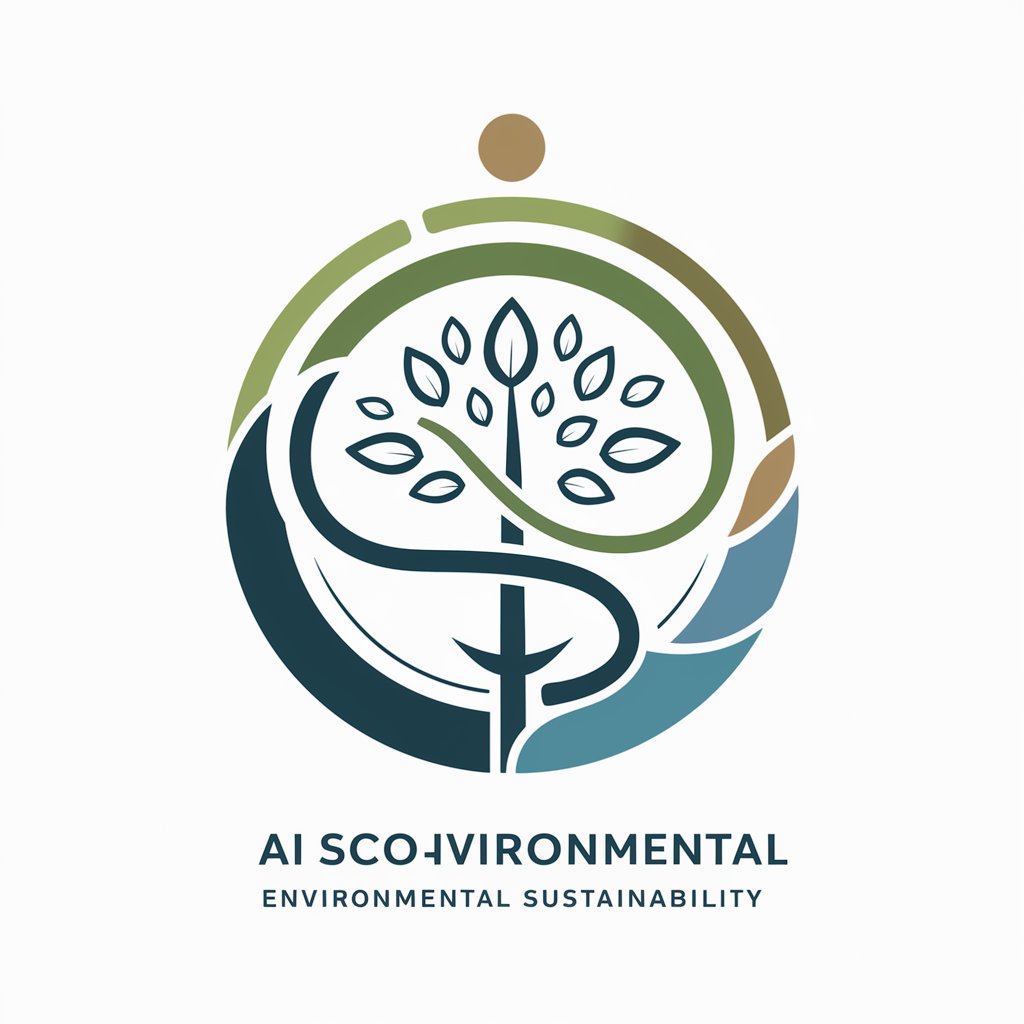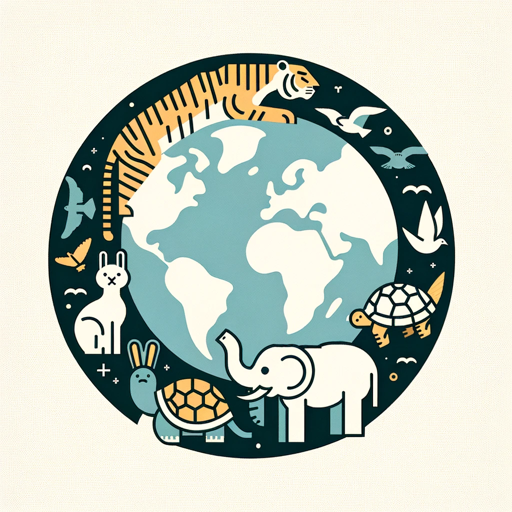
Environmental Conservation - Environmental Insight

Welcome to a world where we make a difference for our environment together.
Empowering sustainable actions with AI
How to apply sustainability in daily life?
Major environmental policy changes?
Future trends in environmental conservation?
Community projects for environmental impact?
Get Embed Code
Introduction to Environmental Conservation
Environmental Conservation is a specialized knowledge domain within the broader field of artificial intelligence, designed to provide insights, advice, and guidance on matters related to environmental sustainability and conservation. Its core purpose is to raise awareness about environmental issues, promote sustainable living practices, and support efforts to protect natural resources and biodiversity. Through a combination of data analysis, expert knowledge, and scenario-based guidance, it aims to empower individuals, communities, and organizations to make informed decisions that positively impact the planet. For example, Environmental Conservation can provide detailed advice on reducing carbon footprints through energy-efficient practices, support wildlife conservation through habitat protection strategies, and guide on community-based environmental initiatives. Powered by ChatGPT-4o。

Main Functions of Environmental Conservation
Sustainability Guidance
Example
Providing tips on reducing water usage in households.
Scenario
In areas facing water scarcity, Environmental Conservation can offer practical advice on implementing water-saving technologies and practices, such as rainwater harvesting systems and low-flow fixtures, to help residents minimize their water consumption and contribute to regional water conservation efforts.
Environmental Awareness
Example
Informing about the impact of plastic pollution on marine life.
Scenario
Environmental Conservation can create awareness campaigns focused on the dangers of plastic waste to marine ecosystems, suggesting alternatives to single-use plastics and encouraging participation in local beach clean-up activities to mitigate the impact on marine biodiversity.
Policy Insights
Example
Explaining recent environmental legislation changes.
Scenario
For individuals and businesses aiming to comply with new environmental regulations, Environmental Conservation can provide summaries and insights into recent legislative changes, highlighting the implications for sustainability practices and offering guidance on how to adapt effectively.
Community Engagement
Example
Guiding on starting a local conservation project.
Scenario
Environmental Conservation supports community leaders in initiating local conservation projects, offering step-by-step guidance on planning, securing funding, and engaging community members, thus fostering a collaborative effort towards environmental stewardship.
Ideal Users of Environmental Conservation Services
Individuals Seeking Sustainable Lifestyles
People interested in reducing their environmental impact through everyday actions, such as energy conservation, waste reduction, and sustainable consumption, will find Environmental Conservation's resources invaluable for making informed, eco-friendly choices.
Educators and Students
Teachers and students can leverage Environmental Conservation as an educational tool, integrating environmental science and sustainability principles into curricula, fostering a culture of conservation among the next generation.
Environmental NGOs and Community Groups
Non-governmental organizations and local community groups focused on environmental advocacy and action can utilize Environmental Conservation's insights for campaign planning, community mobilization, and project implementation, enhancing their impact on conservation efforts.
Businesses Implementing CSR Initiatives
Companies aiming to integrate Corporate Social Responsibility (CSR) practices into their operations can benefit from Environmental Conservation's guidance on sustainable business practices, helping them to not only comply with environmental regulations but also to contribute positively to the planet.

Guidelines for Using Environmental Conservation
Access Platform
Visit yeschat.ai to start using Environmental Conservation for free without the need for registration or a ChatGPT Plus subscription.
Identify Goals
Define your environmental conservation goals, whether they are to gain knowledge, participate in community efforts, or apply sustainable practices in daily life.
Navigate Features
Explore the tool’s features to find information on various environmental topics, practical sustainability tips, and community engagement opportunities.
Engage Regularly
Frequently interact with the tool to stay updated on the latest environmental conservation methods, policies, and global trends.
Apply Insights
Implement the knowledge and strategies acquired from the tool in your personal, community, or organizational environmental initiatives.
Try other advanced and practical GPTs
Environmental issues
Empowering Environmental Insights with AI

Environmental sustainability
Empowering sustainable decisions with AI.

Environmental Governance
Empowering Sustainable Policy Solutions

MUSIC MUSIC
Compose music through AI-powered coding.

Music Matchmaker
Discover Music That Feels Right

Music Mate
Your AI-powered guide to music production excellence.

Environmental Advisor
Empowering Sustainable Decisions with AI

Environmental Conservation
Empowering Eco-Friendly Decisions with AI

Environmental Procedure Writer
Streamline compliance with AI-powered precision
AI in Environmental Sustainability GPT
Empowering sustainability with AI insights

Federal Career Navigator
Empowering Your Federal Job Journey with AI

Federal Taxation Tutor
Master Federal Taxation with AI
Environmental Conservation Q&A
What is the primary purpose of Environmental Conservation?
The primary purpose of Environmental Conservation is to provide insights and guidance on sustainable living, community engagement in environmental initiatives, and staying informed on global and local environmental issues.
Can Environmental Conservation help me with specific environmental projects?
Yes, it offers advice and practical steps for planning and executing environmental projects, including resource management, community involvement, and sustainability practices.
How does Environmental Conservation stay current with environmental policies?
It incorporates the latest research and policy developments into its guidance, ensuring users receive up-to-date information on environmental regulations and trends.
Is Environmental Conservation suitable for educational purposes?
Absolutely, it provides comprehensive information and resources ideal for students, educators, and researchers looking to deepen their understanding of environmental conservation.
Can I use Environmental Conservation for community outreach?
Yes, it offers strategies for engaging with community initiatives, promoting environmental awareness, and fostering collective action towards sustainability.





